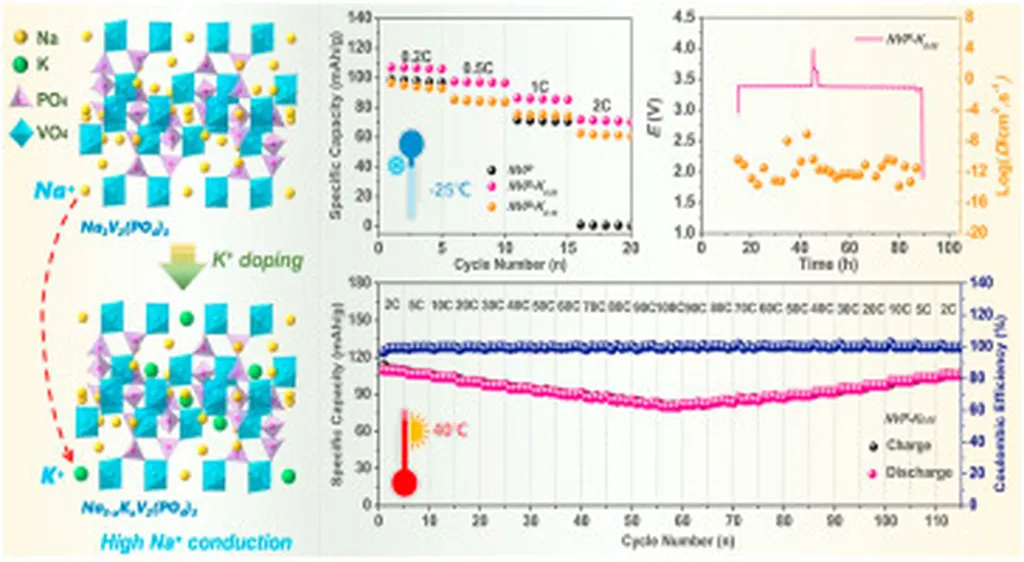In the quest for advanced energy storage solutions, researchers have long recognized the potential of hard carbon (HC) anodes in potassium-ion batteries. Now, a groundbreaking study led by Ziyi Zhu from the National and Local Joint Engineering Research Center of Lithium-Ion Batteries and Materials Preparation Technology at Kunming University of Science and Technology in China, sheds new light on how atomic doping can significantly enhance the electrochemical performance of these anodes. Published in the journal *Sustainable Materials and Technologies* (SusMat), the research offers a comprehensive analysis of the synergistic effects of structural evolution and performance changes in HC, paving the way for more efficient and high-performance energy storage systems.
The study focuses on the co-doping of nitrogen (N) and sulfur (S) into hard carbon, a process that not only creates active sites for electrochemical redox reactions but also expands the carbon interlayer spacing and regulates electronic properties. This dual action improves diffusion kinetics, a critical factor in the performance of potassium-ion batteries. “The introduction of N/S can adjust the curvature of graphitic microcrystallites, promoting the formation of closed pore structures,” explains Zhu. “This contributes to the pore-filling of quasi-metallic potassium clusters, enhancing the overall storage capacity and efficiency.”
One of the most remarkable findings of the study is the confirmation of the “adsorption-insertion/pore-filling” mechanism for potassium storage in HC. This mechanism, validated through multidimensional characterization techniques, provides a deeper understanding of how atomic doping influences the microstructure of hard carbon. The research establishes a theoretical framework for designing high-performance HC anodes, offering a methodological approach for future advancements in the field.
The implications of this research are significant for the energy sector. Potassium-ion batteries, known for their cost-effectiveness and abundance of raw materials, could see a substantial boost in performance and durability. This could accelerate their adoption in various applications, from grid storage to electric vehicles, contributing to a more sustainable energy future.
As the world continues to seek innovative solutions to meet growing energy demands, this study provides a crucial step forward. By enhancing the electrochemical performance of hard carbon anodes, researchers are not only improving the efficiency of potassium-ion batteries but also laying the groundwork for next-generation energy storage technologies. The work of Zhu and his team, published in SusMat (translated as *Sustainable Materials and Technologies*), underscores the importance of continued research and development in this field, offering a promising path toward more reliable and efficient energy storage solutions.

